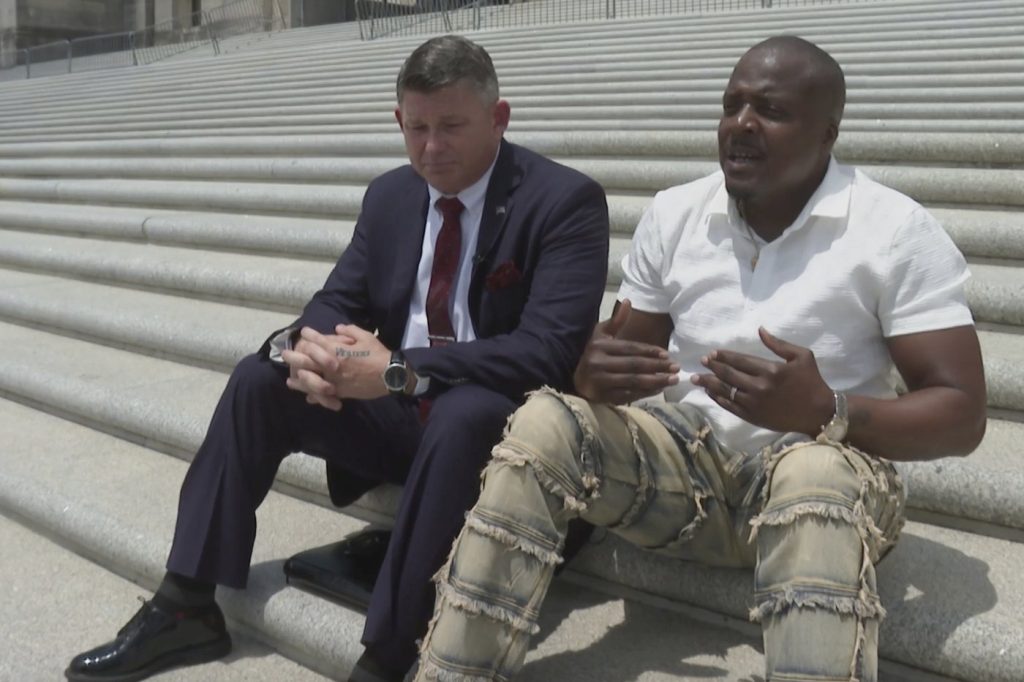In Baton Rouge, Louisiana, a haunting tale of injustice unfolded from the lies of 18-year-old Bobby Gumpright in 1999. As he rode home on his bike from his bartending job in New Orleans, Gumpright concocted a story to explain the absence of his paycheck, which he had squandered on drugs. He fabricated a robbery narrative, claiming a Black man had held him at gunpoint. This lie unraveled when a detective presented a lineup of potential suspects.
Jermaine Hudson, a 20-year-old Black man, was apprehended during a traffic stop across town, unaware that he would be implicated in a crime he did not commit. Despite two jurors doubting Gumpright’s account, Hudson was convicted by a split jury—a decision later deemed unconstitutional by the U.S. Supreme Court due to its roots in racist Jim Crow laws. Nearly 1,000 individuals remain incarcerated in Louisiana as a result of similar split jury convictions.
Fast forward 25 years, with Hudson serving a 99-year sentence, he reflects on the years stolen from him—missing out on milestones and the births of his children. While Hudson languished in prison, Gumpright battled guilt from his actions, eventually seeking redemption after hitting rock bottom with substance abuse.
The longstanding practice of allowing split jury convictions was unique to Louisiana and Oregon. Louisiana had adopted this practice in 1898 as a means to uphold white supremacy, effectively silencing Black jurors. In 2018, however, Louisiana voters abolished nonunanimous jury convictions, and the Supreme Court subsequently ruled such practices unconstitutional. Yet, Louisiana’s Supreme Court denied retroactive applications of this ruling, leaving many wrongfully convicted individuals with little recourse for justice.
After spending 22 years in prison, Hudson's long-awaited breakthrough came in 2021 when Gumpright, who had entered a drug treatment facility, admitted to his fabrication. This confession spearheaded Hudson’s release from incarceration. Upon reconnecting, Hudson and Gumpright formed an unexpected bond, united by their shared history.
The duo now advocates for legislation aimed at providing individuals convicted by split juries an opportunity to have their cases retried. Gumpright, addressing a legislative committee, spoke candidly about the irreversible consequences of his actions, advocating for a measure that would not automatically grant retrials but allow even the wrongfully convicted a chance at justice.
The proposed bill gained traction within the legislative committee, eliciting cheers from supporters, while Gumpright and Hudson embraced—tears of joy marking their reunion and shared mission. Hudson emphasized his forgiving nature, finding solace in Gumpright's repentance and their mutual need for healing.
Today, Gumpright, sober for four years, actively works as an addiction counselor, while Hudson has re-established his life in Texas, focusing on family and new business ventures. Their relationship has blossomed into brotherhood, with both men supporting each other through their journeys of redemption and recovery, keeping close contact through daily encouragement and shared memories.











